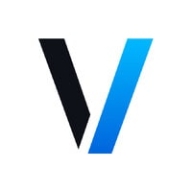

Veracode and Black Duck compete in the software composition analysis category. Veracode seems to have the upper hand due to its comprehensive security testing and strong customer support.
Features: Veracode provides static, dynamic, and interactive security testing, specializing in static code analysis, vulnerability management, and integration capabilities. Its detailed reporting and false positive management are also valued. Black Duck is focused on identifying open-source components and vulnerabilities while offering detailed license and component management, ideal for environments heavily dependent on open source.
Room for Improvement: Veracode users experience issues with false positives, lengthy scanning times, and complex setup. Improvements are desired in integration with development processes and better support for emerging languages. Black Duck users seek enhanced vulnerability identification, more streamlined reporting, and cost reductions, with concerns about documentation and setup complexity.
Ease of Deployment and Customer Service: Veracode offers flexibility with deployments spanning public cloud to on-premises and is praised for robust customer support and technical assistance. Black Duck is used on-premises and private cloud, yet faces criticisms for deployment complexity and customer support needing improvement.
Pricing and ROI: Veracode is perceived as expensive for small to medium enterprises, though users find its cost justified by security risk reduction and software quality improvement. Black Duck's pricing is seen as high for the feature set offered, with limited noteworthy ROI benefits reported by users.
If you're using it on critical external programs where there is regulatory compliance on ensuring that the source code is clean from open-source, there's substantial ROI.
The scanners of Veracode bring status of the weaknesses in the current infrastructure. It scans and provides reports regarding the servers, the network, and the applications running on those servers.
Regarding price, the evaluation should focus on how efficiently they will recover their investment, considering the time saved through the use of Veracode Fix, for example, and the ability to fix code at dev time compared to the problems faced when fixing after the product is already deployed.
We did see a return on investment with Veracode, as we segregated our remediation efforts, which reduced our time to delivery as well as the number of engineers needed to help us in delivering a secure solution.
There are some pain points with the response time and first-level support quality.
Access to the engineering team is crucial for faster feedback on the product fix process.
I have communicated with the technical support of Veracode a couple of times, and this was a really great experience because these professionals know their material.
They share detailed information via email, including screenshots or further clarification about the issue.
I would rate the scalability of Black Duck 8 or 9.
Cloud solutions are easier to scale than on-premise solutions.
It has a good capacity to scale effectively.
Implementing these features into our normal CI/CD was good, so I can say that scalability is really good.
If the Veracode server is down, we experience many issues during the scan.
I have observed that it is not that reliable in terms of security because Veracode was not able to find some security threats in our application that existed since the product was developed.
It's not that easy to onboard, but once they have been onboarded on the platform, and the pipeline configured alongside the product configured, it works effectively.
It can improve on the security side of it, specifically vulnerabilities identification.
There are areas for improvement such as false positives and the scanning of containers.
Black Duck does not have the SBOM management part.
If it could be integrated directly with code repositories such as Bitbucket or GitHub, without the need to create a pipeline to upload and decode code, it would simplify the code scan process significantly.
We had issues with scanning large applications. Scanning took a lot of time, so we kept it outside the DevOps pipeline to avoid delaying deployments.
A nice addition would be if it could be extended for scenarios with custom cleansers.
It's not the most expensive solution.
Overall, Veracode's pricing is lower and more scalable than many alternatives in the market.
If there's a security gap, you'll never know the cost or effect.
The most valuable feature of Black Duck is the composition analysis feature, which is effective for security risk management.
Black Duck's ability to identify dependencies very accurately has been most valuable in identifying and mitigating risks.
The software composition analysis is most effective for security risk management.
It offers confidence by preventing exposure to vulnerabilities and helps ensure that we are not deploying vulnerable code into production.
The best features in Veracode include static analysis and the early detection of vulnerable libraries; it integrates with tools such as Jenkins.
It fixes issues directly in the IDE while you're doing it.
| Product | Market Share (%) |
|---|---|
| Black Duck SCA | 12.5% |
| Veracode | 7.0% |
| Other | 80.5% |
| Company Size | Count |
|---|---|
| Small Business | 6 |
| Large Enterprise | 16 |
| Company Size | Count |
|---|---|
| Small Business | 69 |
| Midsize Enterprise | 44 |
| Large Enterprise | 115 |
Black Duck is an essential tool for software composition analysis and license compliance. It identifies vulnerabilities effectively and supports security management in DevOps environments, offering integration, performance stability, and community support.
Organizations rely on Black Duck for seamless integration in CI/CD pipelines, thorough scanning of source and binary codes, and management of operational risks associated with open-source and commercial licenses. It plays a crucial role in security risk management and delivers a robust policy management framework. Users value its ease of use and reliable community support while benefiting from its comprehensive dependency visualization capabilities. Despite its strengths, there is room for enhancement in integration with other tools, UI friendliness, and reporting features.
What are Black Duck's key features?
What should users look for in ROI?
Enterprise environments use Black Duck extensively for security, compliance, and risk management, ensuring software meets regulatory standards and mitigates vulnerabilities. Its implementation in specific industries aids in controlled and secure software development processes, underlining its role in maintaining rigorous security standards while delivering dependable performance.
Veracode is a leading provider of application security solutions, offering tools to identify, mitigate, and prevent vulnerabilities across the software development lifecycle. Its cloud-based platform integrates security into DevOps workflows, helping organizations ensure that their code remains secure and compliant with industry standards.
Veracode supports multiple application security testing types, including static analysis (SAST), dynamic analysis (DAST), software composition analysis (SCA), and manual penetration testing. These tools are designed to help developers detect vulnerabilities early in development while maintaining speed in deployment. Veracode also emphasizes scalability, offering features for enterprises that manage a large number of applications across different teams. Its robust reporting and analytics capabilities allow organizations to continuously monitor their security posture and track progress toward remediation.
What are the key features of Veracode?
What benefits should users consider in Veracode reviews?
Veracode is widely adopted in industries like finance, healthcare, and government, where compliance and security are critical. It helps these organizations maintain strict security standards while enabling rapid development through its integration with Agile and DevOps methodologies.
Veracode helps businesses secure their applications efficiently, ensuring they can deliver safe and compliant software at scale.
We monitor all Software Composition Analysis (SCA) reviews to prevent fraudulent reviews and keep review quality high. We do not post reviews by company employees or direct competitors. We validate each review for authenticity via cross-reference with LinkedIn, and personal follow-up with the reviewer when necessary.